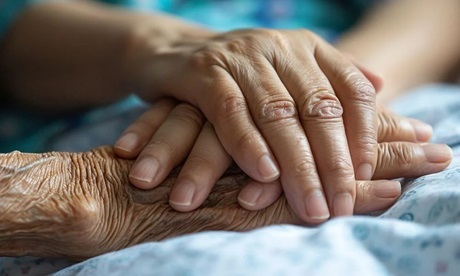Support Life Sunday is a day set aside to encourage Catholics everywhere to reflect on life and the human dignity of every person.
“Every person matters… always! He mea nui te ora o ngā tāngata katoa… i ngā wā katoa!” So reads New Zealand’s Support Life Sunday tagline.
Inspired by the Vatican document Dignitas Infinita (On Human Dignity), the day reaffirms “the indispensable nature of the dignity of the human person in Christian anthropology” says Bishop Steve Lowe, president of the NZ Catholic Bishops Conference.
Dignitas Infinita reflects on what this means for individual human rights, how this impacts on our freedom in the moral and social spheres and ways it can be violated – through poverty, war, human trafficking, sexual abuse, abortion and euthanasia, Lowe says.
“We see Support Life Sunday as an opportunity to reaffirm a central and ubiquitous teaching of the Church and we hope it can be imprinted in our hearts and our minds as a daily [not just a Support Life Sunday] calling.”
Dr John Kleinsman, director of the Nathaniel Centre, puts it this way – each person’s value and worth “calls us to work tirelessly for justice for the weak and needy, the poor and afflicted, the vulnerable, the most insignificant, the marginalised and those downtrodden by the powerful”.
Support Life … how in a country that enables euthanasia?
New Zealand’s End of Life (euthanasia) practice is the subject of an ongoing review, says Simon O’Connor MP.
The Minister in charge of the review is David Seymour.
Palliative care specialist Dr Jane Greville and ethics expert Dr Dana Wensley were inaugural members of the three-person review committee in 2021, just before the End of Life Choice Act came into force.
That committee assesses clinicians’ reports on each assisted death and checks the law is being complied with. In cases where the law may have been breached, they must alert the End of Life Choice Registrar.
In a letter to Health Minister Shane Reti in March, Greville said that while the new law’s introduction had been very smooth, the committee had been “constrained to the point of irrelevance”.
Information lacking
There’s a lack of information from the Ministry of Health, Greville and Wensley say.
Illustrating this, Wensley says she was denied access to requested data on assisted dying statistics.
Information for the reviewers about the patients was sparse or absent, she and Greville stated.
There are no records about the time patients had their lethal dose of medication, so reviewers could not consider cases where death might have taken longer than expected.
Nor did they have access to “basic material” including a patient’s diagnosis, prognosis, assessment of capacity, or information which could help detect any suggestion of coercion.
Wensley and Greville say reports about patients and their doctors’ recall of their cases were inconsistent. Greville wrote to Minister Shane Reti about this.
The Ministry’s response was the same as when the pair also discovered incomplete and blank patient reports – they were told to “just assume nothing is wrong”.
Greville and Wesley also discovered a case where a patient was approved for assisted dying, then died, while having no common language with the medical team and no interpreter provided.
When they raised their concerns about this, the Ministry of Health told them it was not within their remit. Nor did the Ministry acknowledge that the law might be faulty.
They have since had their contracts with the review committee cancelled.
Review underway
The Ministry says there are multiple safeguards built into the law. It will examine the review committee’s scope in a review which is now under way.
Source
Additional reading
News category: New Zealand.




